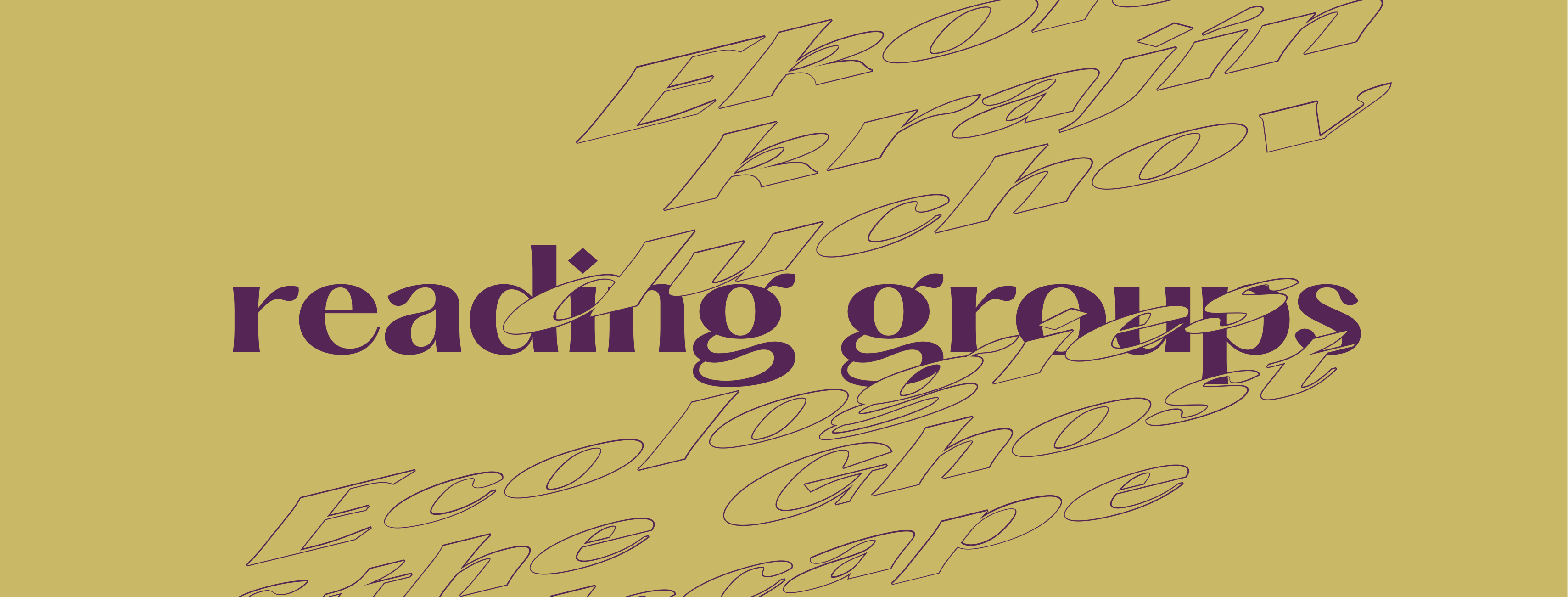
Forest Ecologies online reading group
April – June 2020
in collaboration with tranzit, Bratislava, Slovakia
Forest Ecologies
Reading group I, led by Borbála Soós
Thursday, 9 April, 5 – 6.30pm (local time in Slovakia)
This is the first reading group within a series of sessions related to the project Ecologies of the Ghost Landscape, The Word for World is Forest at tranzit.sk. In response to the spread of COVID-19, the opening of this exhibition has been postponed until June 2020.
Led by curator Borbála Soós, during this meeting we will trace how seemingly opposing notions of the forests and city, nature and culture are entangled and mutually contingent ideas throughout human history. We will discuss the problematics encoded in deforestation and monoculture plantations as violent actions that severe these complex entanglements and among other issues increase the frequency of zoonotic transfer of viruses. We will discuss the future management of nature through further financialisation such as carbolonialism. Within this framework, we will come to understand the forest and its ecologies as a web of relations including human and more-than-human beings, as well as the social and cultural practices, cultivation, tensions, politics, financial pressures and wars it entails.
--
Rewilding
Reading group II, led by Borbála Soós
Thursday, 23 April, 5 – 6.30pm (local time in Slovakia)
Please register by April 21 here. We´ll get back to you with the further info, the list of readings and the video conferencing link. The number of participants is limited to 20. The reading group will be held in English.
For the second reading group related to the project Ecologies of the Ghost Landscape, the Word for World is Forest we will address the idea of rewilding led by curator Borbala Soos.
Rewilding originates in an ecosystem management strategy that aims to counter manmade ecological devastation. By (re)introducing certain keystone species into areas depleted in biodiversity, it speeds up natural processes and gives rise to rich ecologies of multi-species entanglements. Without necessarily romanticising the past, it challenges traditional ecological conservation through a holistic, interdisciplinary and resilient approach. First used in the 1990s, discussions of rewilding have since expanded to incorporate ecological experiences of everyday life (Monbiot 2013), society and politics.
The Wild was created by a colonial regime to reject the Other and Other spaces, as outside of its system (Halberstam&Nyong’o 2018). The place ‘where wild things are’ represents the anti-hegemonic, where disorder and disobedience interrupt neat narratives. At this current time of climate crisis and when biopolitical regimes and capitalism have colonised life, I draw on the Wild as a powerful alternative to catalyse systemic change. It is an active anti-hegemonic space, a seedbed for cultivating disruption, queering and troubling artistic, curatorial and social practices. What kind of New Wild is possible where disorder and disobedience interrupt neat narratives? What kind of politics can rise from these spaces?
Alongside its positive potential, rewilding is a controversial and contradictory term. It claims multi-species relations, whilst remaining a human-centred directive (man as saviour). Ongoing colonial and capitalist territorial expansion have been ending worlds for as long as they have been in existence, and, whilst Rewilding has promise as a counter, the same problems remain regarding who controls the territories, borders and rules of engagement. We will continue probe this problematic together through discussions about the readings.
--
Burning Perspectives
Reading group III, led by xtro realm with Borbála Soós
14 May 2020, 5 - 6.30 pm (local time in Slovakia)
Sublime images of forest fires, captive tigers and the return of the dolphins to Venice’s canals have been circulating on the web and in our minds. Instead of exploiting the quick reactions from the aesthetics of such images, how can we nurture an ecology of images and art that can help move towards a systemic change and planetary health? The meta-narrative of apocalypse seems to be a recurring theme when contemplating the climate crisis as well as its current impacts shattering parts of the Earth and its human and non-human inhabitants. Humanity gets a thrill out of imagining its own end not just as persons but as a species. Is this a fantasy that helps to mobilize responsibility or does it act to the contrary, restraining our imagination from a possible change?
Reading list:
Demos, T.J.. The Agency of Fire: Burning Aesthetics, e-flux Journal #98. February 2019.
Buell, Frederick. A Short History of Environmental Apocalypse, In: Future Ethics - Climate Change and Apocalyptic Imagination. Ed. by Stefan Skrimshire. Continuum International Publishing Group. 2010.
P. 13-25.
Recommended: p 13-37, the whole chapter (accessible upon registration).
Cave, Damien: The End of Australia as We Know It. The New York Times. Feb. 15, 2020.
--
Radical Care
Reading group IV, led by Borbála Soós
28 May, 5 pm - 7 pm (local time in Slovakia)
Care is a vital, but under-examined praxis of radical politics that provides spaces of hope in precarious times. Self-care, despite its susceptibility to neoliberal co-optation, has much potential to include other forms that push back against structural disadvantages. This reading group suggests that thinking with a virus, with toxicity and through the state of being unwell invites a recounting of affectivity and relationality. It is a way of learning to stay with the trouble, both personally and in terms of our relationships with other beings, sites and materials. We will consider what kind of structures biopolitics impose upon our bodies and relations, and how radical care can offer modes outside of this system, and different ways to go through the world with one another. What does it mean to care for oneself, to care for and to share the world with others?
Reading list:
Hi‘ilei Julia Kawehipuaakahaopulani Hobart and Tamara Kneese, Radical Care: Survival Strategies for Uncertain Times
Paul B. Preciado, Learning from the Virus
Dodie Bellamy, When the Sick Rule the World (Chapter 1, pp 25-36, available upon registration)
María Puig de la Bellacasa, Matters of Care (Chapter 4, Alterbiopolitics, available upon registration).